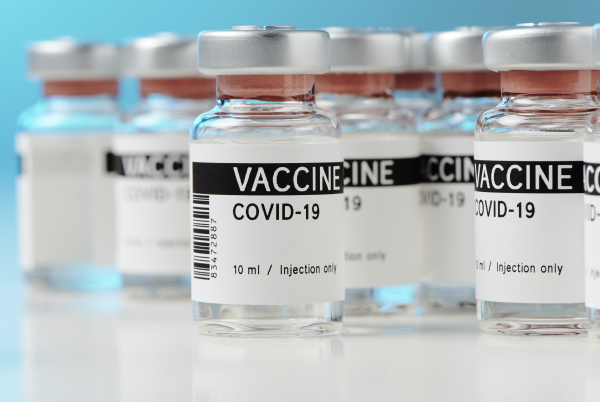Australia has a 'suppression' strategy for COVID-19 premised on the development of a vaccine. Yet has a strong focus on suppression being accompanied by an equally committed effort to urgently secure a vaccine?
The US, UK and Europe started searching for, investing in and securing advance supply agreements for some of the leading vaccine candidates in May and June.
This has involved direct financial support to researchers and companies.
The US established 'operation warp speed' in mid-May and identified the candidates it would support financially in early June. It has subsequently secured hundreds of millions of doses of these vaccines if and when they are approved. The UK, Europe and other countries have taken a similar approach.
South Korea has become the latest country to secure access to a vaccine candidate.
In the past few days, AstraZeneca has announced two manufacturing deals covering the production of the COVID-19 vaccine they are developing with The University of Oxford. One of the deals will enable manufacturing and distribution in South Korea while another means an additional boost to the production of the vaccine in the US.
What has Australia been doing at the same time?
Is it possible much of the supply of the leading vaccine candidates had been secured by other countries before Australia even seriously turned its mind to overseas options?
The issue is compounded by the comparatively limited domestic options for manufacturing a vaccine.
The federal government does appear to be committed to the local production of any vaccine - even if that is limited to downstream production of an already manufactured bulk product. It might also be easier to just procure finished product overseas.
The federal government invested comparatively small sums in vaccine research efforts, including at The University of Queensland (UQ).
Health minister Greg Hunt has talked about 'licensing' an overseas vaccine but that might be a euphemism for the procurement of unfinished bulk product - with Australia limited to downstream production.
In terms of an actual locally developed vaccine, Australia remains heavily reliant on UQ's recombinant COVID-19 vaccine. It has started human clinical trials and would be manufactured by CSL if development proceeds to approval.
The ambition for a locally produced vaccine appears almost entirely dependant on CSL as the manufacturer of the UQ recombinant vaccine or the 'downstream processor' of one of the vaccines in development overseas.
There is no practical prospect CSL could manufacture from scratch and under license one of the mRNA (Pfizer and Moderna) or adenovirus viral vector (AstraZeneca) vaccines currently in development.
CSL has previously said it could "reconfigure and re-license" a facility to produce an mRNA vaccine and that it could "hypothetically do the cell culture manufacture" required for an adenovirus viral vector vaccine.
However, neither appears practical, not least because of the time involved. It is not as if the company can repurpose a manufacturing facility in just a few days.
The company is now focussed on supporting the development of the UQ vaccine or the 'downstream processing' of an approved overseas candidate regardless of the technology.
According to Dr Anthony Stowers, CSL's vice president of recombinant product development, “Collaborating with UQ in support of their COVID-19 vaccine candidate program is CSL’s priority - while there is a long way to go, early progress is showing promise."
He said, “In parallel to our work with UQ, we are exploring ways to support the manufacture of other vaccines under development and will keep discussions open.
“This includes the capacity to undertake the ‘downstream’ aspects of vaccine production, such as processing licensed vaccine material into vials at our Seqirus facilities in Melbourne.”
